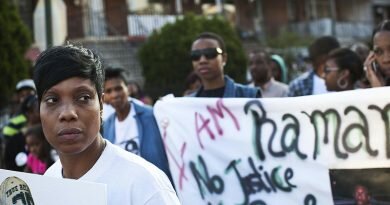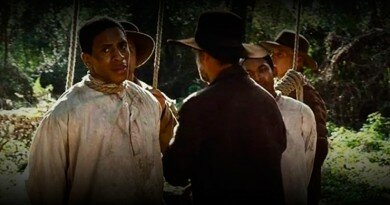Anything While Black Turns Into Struggle
C. Nicole Mason tells about the unpleasant experience of partying while Black and successful.
C. Nicole Mason is the author of Born Bright: A Young Girl’s Journey From Nothing to Something in America (St. Martin’s Press). In her works and speeches, she tells real-life stories and tackles the issues any Black person can face in America.
We are Born Bright! Thank you @cnicolemason for your brilliance and generosity. @TheWomensFndtn pic.twitter.com/fY5J5utFSM
— Rhonda Henderson (@educate_rhonda) June 6, 2017
The text was initially and in full published by The Root.
The Barnaby Woods neighborhood of Chevy Chase in Washington, D.C., is a heavily Democratic, progressive enclave known for its walkability and lush greenery. It is also the neighborhood chosen by Vice President Mike Pence to live before he moved into the vice president’s mansion.
The neighborhood, while progressive, is not racially diverse, with about 10 percent of the population African-American or other people of color. It is also the wealthiest zip code in the city. Most African-Americans in the city reside in wards 7 or 8, across the Anacostia River, where poverty rates hover above 30 percent.
I chose Barnaby Woods because of its top-ranked public elementary school. I have 7-year-old twins and was not interested in competing for the too few slots available for decent schools in the citywide lottery.
On Sunday night, I hosted a milestone birthday party for a dear friend whom I have known for more than a decade. The party began in earnest at 9:30 p.m., and by 10:45 p.m., a little more than an hour later, I was arrested and in a squad car headed down to the 2nd District precinct.
I was silent. I knew what could happen to me if I asked a question or refused to go. Immediately I thought of Sandra Bland, the Black woman pulled over for a routine traffic shot in Texas who, days later, was found dead in her jail cell; the young girl, also in Texas, who was assaulted by a police officer while attending a pool party; and the high schooler in South Carolina who was manhandled by a school safety officer while sitting at her desk.
Truth. https://t.co/CywcdGqfDh
— C. Nicole Mason, PhD (@cnicolemason) May 30, 2017
I could be beaten or, even worse, killed. And it would be my fault. My fear was justified. I also thought about my children, who were away at a slumber party, and how panicked they would feel if I failed to pick them up the following morning.
When my friends—doctors, lawyers and other professionals in their best clothes—gathered in the driveway to inquire about why he was arresting me, the white officer refused to respond and replied only that he “didn’t have to listen to this.”
In that moment, we all felt hopeless and helpless. We were the “good” Blacks. We had all done the right thing: gone to college, purchased homes and had outstanding careers. We followed the rules. I am the first in my family to graduate from high school, attend college and earn a Ph.D. If there was, in the words of W.E.B. Du Bois, a Talented Tenth, we were among them. However, none of that mattered.
“Recently we’ve seen girls harassed in schools for their hair & the way they look” @cnicolemason #GirlsLEADdc pic.twitter.com/P06DKCI3bD
— GirlsLEADdc (@GirlsLEADdc) May 24, 2017
What I know to be true is that although I have managed to achieve a certain measure of personal and professional success, I have never been fooled into believing I was above the dehumanizing treatment and suspicion often visited upon Black people regardless of class or education. Through marked and sometimes painful experiences of racism, I understand plainly what it means to be Black in America and to be robbed of human dignity, not only for what you have failed to achieve because of institutional and structural racism, but also for what you’ve been able to achieve despite these prejudices.
That night, I chose to celebrate despite feeling dehumanized and powerless. I would not let them steal my joy.
I see you, Serena Williams, LeBron James, Gabby Sidibe, Forest Whitaker and Colin Kaepernick. We already know how hard it is to do anything while Black.






